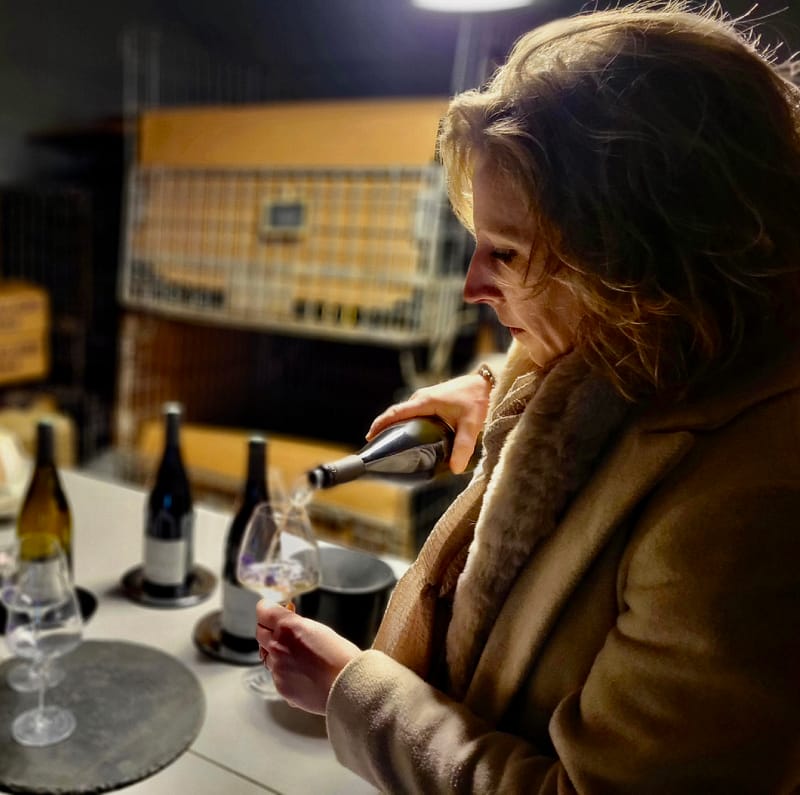Contrary to the majority of Burgundian winemakers, Caroline Bellavoine does not hail from a lineage of vignerons. After pursuing studies in oenology, she took over a few vineyard sites in Saint-Sernin-du-Plain and Dezize-lès-Maranges back in 2003. A few years later, Caroline stumbled upon a nearby domaine owned by a local grower and ended up acquiring it in 2007. The winery was surrounded by a handful of old vines, though she continued to piece together small parcels around the Hautes-Côtes. Today, Caroline proudly farms six and a half hectares.
Caroline’s parcels are rooted in a variety of soil types, which has allowed her to cultivate a handful of grape varieties, including Chardonnay, Pinot Noir, Aligoté, and Gamay. She produces a handful of still red and white wines, as well as a rosé and sparkling crémant. All farming is done organically. In the cellar, native yeasts and whole bunches are used, and all grapes are pressed as gently as possible. Caroline also allows her wines to undergo long vatting periods, as she believes this is the key to finding finesse and elegance in wine.
In her words, “I care for my vines and age my wines with love, and with respect for this beautiful terroir, extracting the very best from each plot.” It is always impressive to see talented growers start their projects from scratch, especially in a region as hard to access as Burgundy. Caroline has already made a lasting impression, and in our eyes, she’s just getting started. We can’t wait to follow her along her journey.


